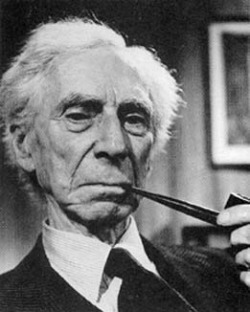For those of you uninformed, I don’t believe in God. Some people have taken surprise and almost offence to hear such a conviction, and a while ago I’d be among them. However, I believe this is justified; it is not a stupid rebellious desire or any of that teenage bollocks, it’s a philosophical conclusion, and I would like to clear up why I hold this lack of belief. As kind of mentioned: this is a philosophical and slightly scientific sketch, where I intended to include religion as a major component as that’s where the idea of God is highly relevant, but fuck me, it’s long enough as it is.
Let me start by giving two propositions:
Proposition 1: I don’t believe in God.
Proposition 2: I believe there is no God.
Notice that I used proposition 1 in the opening paragraph (I referred to lack of belief as opposed to a belief in no God). I believe these two differ greatly, especially when debating, and can be explained as follows: a baby does not have a belief in God, but it does not have a belief that there is no God. This shows the importance of language, another importance of language is to define ‘God’. The range is immense, from la-di-la pantheistic nature concepts (i.e. ‘nature is my god’) to anthropomorphic religious supreme beings. For simplicity, let’s refer to ‘God’ as a higher intelligence, which should include deistic concepts as well as religious concepts (basically it should agree with most believers’ views).
With this definition of God, I uphold proposition 1, and to an extent proposition 2. The reason why is that, I think, to argue for a proposition’s truth, I believe you must supply positive evidence for that proposition to change the current status on the matter from ‘not knowing’ to ‘true’ (not necessarily 100% proof). A failure to provide evidence isn’t positive evidence against it, the status on the matter will remain as ‘not knowing’. For example, explaining matter using atomic theory requires positive evidence for atomic theory to be accepted as true and a failure to do so does not mean that matter is not made of atoms, you just simply don’t know yet. To summarise this really, really confusing paragraph by quoting Carl Sagan, ‘…absence of evidence is not evidence of absence.’ I stress the difference as I have to justify the propositions differently to justify my view.
Now, proposition 1. I have not seen positive evidence for the existence of God. I am well aware that there have been traditional arguments, and though tempting to tackle them one by one, I shall forward to you someone much greater than I am, and may even call him God. That man is Bertrand Russell, and this is his essay (the focus relevant to here is the existence of God part and following subtopics, as mentioned, this blog post is not really focused on religion).
Now, proposition 2. This is where evidence that there is no God has to be found. This is a more difficult task, especially if I am to be consistent with my previously stated method of acquiring knowledge. Say if God exists and is just a higher intelligence, without being specific, as this intelligence did not necessarily create the universe, isn’t the centre of morality, and so on, there is pretty much no evidence for this being. However, there isn’t evidence that this being does not exist, with a lack of evidence each way, we simply don’t know, but just don’t believe because there is no evidence for it. This is why I cannot fully be with proposition 2. However, if this is the sort of compassionate intelligence that created us intentionally, cares for us, and so on (give and take qualities), then the evidence for proposition 2 comes round. The sort of evidence I mean here, and to be brief, is the problem of evil, and applies to concepts of God that are meant to be all powerful and benevolent. Just to give one example, if this God is compassionate and cares for humanity, or life in general, why create us through the long, painful process of evolution? And an important point is, religious God generally come into play with such traits.
So my focus is on proposition 1, if my justification for it is accepted alone then that’s my justification for simply not believing in God. To be honest, I am slightly uncomfortable when asked about my position in a single term, as the terms surrounding it are rather inconsistent (for example, agnosticism refers to knowledge, atheism to belief, but are used on some sort of one-dimensional spectrum).
Well there you have it, I hope this makes a morsel of sense, and half a morsel of interest.





 RSS Feed
RSS Feed
